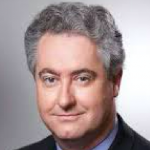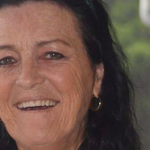Time to Start Over: An Interview With Medicinal Cannabis Pioneer Lucy Haslam

Lucy Haslam has been at the forefront of the movement to re-introduce the use of medicinal cannabis in Australia since 2013. The Tamworth local was instrumental in engaging the support of politicians to a cause that many were sceptical about.
Leading the campaign alongside Ms Haslam was her son Dan. The young man personally gained dramatic relief from his chemotherapy side effects from using cannabis. The mother and son started an online petition calling for the decriminalisation of the medicine, which garnered over 252,000 signatures.
Tragically, Mr Haslam passed away as a result of his illness in 2015 at the age of 25. But, not before putting the cause of legal access to cannabis for patients firmly on the map.
Today, Ms Haslam is still an active medical marijuana advocate. But, she’s grown sceptical of the system the federal government has implemented. And she now believes it’s time to go back to the drawing board.
The failing system
It’s been 24 months since the Turnbull government passed legislation allowing for the legal cultivation and manufacture of cannabis for medicinal purposes. But, despite the Office of Drug Control having issued 30 cannabis-related licences, there’s still no legal domestic product available.
There’s an estimated 100,000 patients who use medicinal cannabis in Australia today. However, only 350 have been issued with cannabis prescriptions, as the process of obtaining a doctor’s script is so convoluted that for most patients they’re unobtainable.
In NSW, it’s estimated that around 50 patients have managed to secure a prescription. So, this means there’s between 30,000 and 40,000 sick people in this state that are still forced to obtain their medicine on the black market, criminalising themselves in the process.
Game-changing legislation
NSW Labor MLC Adam Searle introduced a medicinal cannabis access bill into the upper house on February 15. The legislation would set up a system whereby the possession of small quantities of illegal cannabis would be decriminalised for patients and their carers.
This provision would be put in place to cover the time it takes to set up a lawful medicinal cannabis supply chain that would allow for small-scale artisanal products, along with large-scale production. And there would be an emphasis on whole-plant products.
For the patients
Following a medicinal cannabis access forum she hosted in Sydney on January 16, Ms Haslam formed a new group called the Australian Medicinal Cannabis Alliance.
During the forum, participants produced flow charts that showed how prescription cannabis systems work in the Netherlands, Canada, Israel and Australia. The Australian system required a chart that was eight feet tall, whereas, the other systems fit onto an A4 piece of paper.
Sydney Criminal Lawyers® spoke with Lucy Haslam, founder and director of United in Compassion, about the failings in the current system, her changing point of view regarding what would actually work, and why the once proposed medicinal cannabis regulator was, and still is, the way to go.
Firstly, Ms Haslam, you’ve been campaigning for medicinal cannabis access since 2013. Five years on, how would you describe where Australia is at in regard to medicinal cannabis?
We had a perfect opportunity to do things the right way. And we looked all around the world. Then we chose a path that no other country has chosen and now we’re in an absolute mess.
In 2016, the federal government passed legislation to establish a legal framework for medicinal cannabis. Two years later, there’s still no legal local product available.
In your understanding, why hasn’t the government’s system led to patients being able to access domestic product?
There’s two separate issues. At the moment, there is no Australian produced legal product, because they put a lot of conditions on cultivators and manufacturers.
The channel of setting up a business is quite a lengthy process to go through: abiding by all the regulations and doing it to the standard that the government requires. So, that’s going to take some time.
In the meantime, the government announced 12 months ago that it was going to allow imports into the country to fill that gap – the period between no product at all and having the legal Australian supply available.
There are products held here in a stockpile for Australian patients that have been imported from overseas. The problem is there are very few patients who can access them.
So, where we’ve really gone wrong are all the requirements around access. Very few patients are able to navigate that pathway and to get over the hurdles that have been put in by bureaucrats.
So, what is the process a patient has to go through in NSW in order to legally obtain cannabis medicines?
They first have to find a doctor who is willing to prescribe it. And NSW doesn’t recognise that GPs are adequately skilled enough, so they require a specialist. Or if a GP does do the application, they require a specialist to be part of the team.
The first step is the patient has to find a doctor who’s prepared to do it. And very few doctors know much about it. And many are scared of it, because of all the negative messages that have been given by the government down.
If you find a doctor that is willing to prescribe, the doctor has to do a considerable amount of paperwork. So, there’s a lot of time involved in that. It’s a cost that is either passed onto the patient, or the doctor must absorb that and not many are prepared to.
The application must be put in to the Therapeutic Goods Administration (TGA). And they also have to do a dual application to the NSW government.
What we’re finding in NSW is that patients who may be approved by the federal government are being knocked back by an ethics committee in NSW for all manner of reasons.
It’s particularly that aspect of it that is very worrying to myself, and many other advocates of medical cannabis. Because, NSW Health is giving information that is misleading and clinically incorrect.
They’re encouraging doctors to withdraw their applications, rather than leave them in the process. They’re requiring additional layers of information of already busy doctors, to the point where it’s taking some patients over 12 months to get legal approval, or they never get it.
The result of all that is the public policy that the government put in place is just driving patients to the black market. It’s much quicker, easier and cheaper for a patient to go to the black market.
What do you think of this ongoing situation where the overwhelming majority of Australian patients, along with their relatives, are being criminalised for obtaining a medicine that’s readily available and accepted elsewhere in the world?
To me that’s a moral dilemma. I don’t know how a country such as Australia can allow that to happen. We don’t have a bill of rights, which is a shame.
We’re punishing already sick people by making them criminals. These people should be under the care of the health system. Access shouldn’t be blocked. They should be given access to legal forms of medicinal cannabis and encouraged to be under the supervision of their doctors.
And their use should be decriminalised. It’s just medicine. These people aren’t doing it to get high.
There’s a fundamental moral error in our system. And I don’t really know how we address that without a bill of rights.
A few weeks back, NSW Labor introduced a medicinal cannabis access bill into the upper house. It’s the same as the Foley bill that was introduced into the lower house last year.
If passed, it would allow patients to access medicinal cannabis via the black market without fear of prosecution, as well as establish a lawful supply chain that would allow for small-scale botanical products, as well as large-scale production.
What would the provisions of legislation like this mean for Australian patients?
I was all for a regulated and controlled arrangement. I’ve never been about just anyone growing for anybody.
I know what it’s like to have a patient in the family. You want what is absolutely best for them. And sometimes it’s not just getting any old medicine via whatever way you can.
Many patients like the certainty of getting something that has been through a formal approval process. You know that good manufacturing practices have been involved, and good cultivation practices. And there is no certainty with home growing.
But, the way things have panned out, we are so overregulated that a more unregulated system is highly appealing to me now, and to many patients. And the answer is somewhere in between.
The fact that the Labor bill is seeking to decriminalise it is extremely important, and it is something that the Liberal government should have done years ago.
So, full credit to them, and they have my full support. Because, whatever expedites access for genuine patients is really what this is all about.
At the moment, the Liberal government is just putting hurdles in the way of genuine patients.
On that, the federal Coalition government has twice blocked rapid access to imported products for terminally ill patients via the category A pathway of the TGA’s Special Access Scheme.
Instead, these patients have to use the category B pathway, which is much more time consuming.
In your opinion, why is the government so determined to prevent terminally ill patients from obtaining these medicines in the faster manner?
I came out very strongly against what the federal government did with regard to category A. One can only assume that it is part of a broader objective to derail the whole process.
There’s a lot of hysteria. There’s a lot of political hijinks. And to be honest, there’s a lot of misinformation coming from the medical fraternity, which is advising the government on this.
There are a lot of people at very high levels that have sought actively to derail this whole campaign for broader access.
I can only assume that at the back of it is the support of the pharmaceutical industry, which stands to lose a lot if medical cannabis is more widely adopted.
You co-founded United in Compassion back in 2014. The organisation’s focus is on advocating for patient access to the full spectrum of herbal medicinal cannabis extracts and dried herb cannabis.
How does this aim match up with the kind of system that the federal government seems to be focusing on?
The government is very much focused on a pharmaceutical model. They’re trying to force isolates, synthetics, and far more expensive pharmaceutical cannabis products down the throats of patients.
And clearly, patients don’t want that. There’s no recognition of the entourage effect and the many benefits of botanical products.
As I said, the Labor party bill, whilst once upon a time, I would have thought it went a little bit too far, I am now fully in support of, because the government has gone too far the other way.
So, we need to find some balance for patients. But, in finding that balance we actually need to start to look after the patients, instead of the current system which is turning its back on them.
You recently formed a new group called the Australian Medicinal Cannabis Alliance. Can you tell us a bit about what the group’s aims are?
The group is really a wide association of individuals and likeminded organisations who came together to try and improve patient access.
I put out the call late in 2017. I was feeling tired and desperate and like we were getting nowhere. And many people put their hand up and said we want to help. Because, like me, they think that patient access is atrocious. And the current system is really failing.
Our broad aims are to do whatever is required to expedite patients access, to broaden the people who are able to get it, to streamline the process, and to really push for whole-plant extracts for patients.
And lastly, Ms Haslam, you’ve been advocating for greater access to cannabis medicines for years now.
As you’ve said the current system is failing. So, what is the way forward?
Originally there was a regulator of medicinal cannabis bill, which was introduced into the parliament as a cross-party bill.
It saw that cannabis is not like other pharmaceutical preparations, because of the wide range of cannabinoids that are present, the fact that it’s a botanical product, and that there’s lots of variations amongst strains.
The bill sought to put medical cannabis through an independent regulator.
That would have been a far better system than what has occurred. The government has tried to use the existing Therapeutic Goods Administration system, which is designed for pharmaceutical products. And they’ve tried to force cannabis into that.
It’s like putting a square peg into a round hole. It was never going to work, and now we are seeing the fall out.
We basically need to start again. What we have is failing. But, the first point in getting something to work is the government has to admit it’s failing. And they can’t even do that at this point.
They talk about the numbers as if they’re a victory. But, 350 patients Australia-wide is a dismal failure in my eyes.
And the different states and territories are all doing their own thing. We’re going to have a situation where we have cannabis refugees that will have to relocate states based on what a particular state is doing.
There’s been no consensus between the states. There’s been no political will to fix it. So, we need somebody to be a champion of this and to go back to basics and start again.







